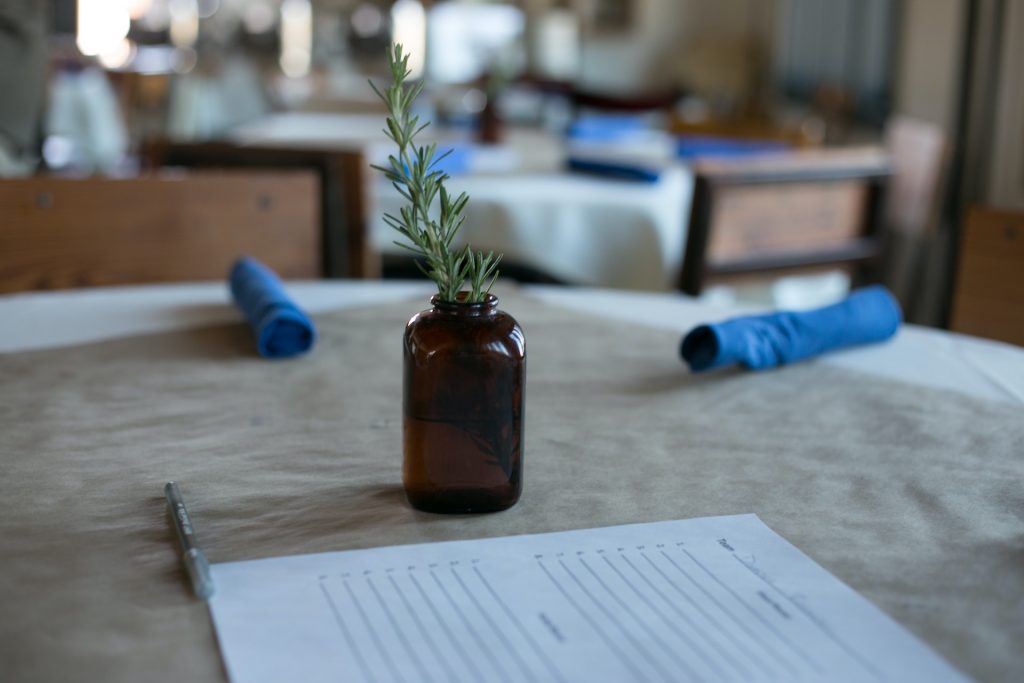
The paperwork of death
If a person dies and the death was expected
Since 9 September 2024, all deaths in any health setting that are not investigated by a coroner must be reviewed by NHS medical examiners. The changes form part of the Department of Health and Social Care’s Death Certification Reforms.
The Death Certification Reforms introduced a new medical certificate of cause of death (MCCD). Medical practitioners are now able to complete an MCCD if they attended the person who has died in their lifetime.
This represents a simplification of previous rules when cases had to be referred to a coroner if the medical practitioner had not seen the patient within the 28 days prior to death or had not seen in person the patient after death.
A medical examiner is a senior medical practitioner who is contracted to provide independent scrutiny of causes of death, outside of their usual clinical duties. They are trained in the legal and clinical elements of death certification processes and will not have been involved in caring for the patient.
Medical examiners:
- provide independent scrutiny of causes of death
- give bereaved people an opportunity to ask questions and raise concerns with someone not involved in providing care to the person who has died prior to their death
- review medical records and work with doctors to complete the MCCD to help ensure this is accurate and to highlight any concerns about the care of the person prior to their death
The medical practitioner (often the person’s GP, or a member of a hospital medical team who have been looking after the person) will complete the MCCD and propose a cause of death, if they can do so, to the best of their knowledge and belief.*
The medical practitioner must then share the MCCD and proposed cause of death with a medical examiner, who will scrutinise these before submission to the registrar.
The registrar will then register the death.
*If the cause of death is not clear, the death will be referred to the coroner who will decide whether to order a post-mortem examination, the results of which will determine whether there needs to be an inquest.

If the death occurs anywhere other than at home or in a care facility
Usually, the emergency services will be called, i.e. the ambulance and police services. If the death appears to be natural and the ambulance service feel that transfer to hospital is not required, the police will arrange for the funeral director contracted to work for the coroner to transfer the person to the nearest public mortuary. The coroner will arrange for a post-mortem examination to ascertain the cause of death.
Whenever a death is suspicious it must be reported to the police. The police will make contact with the local coroner to begin the process of establishing a cause of death.
If a coroner’s post-mortem examination reveals that the death was due to natural causes and that an inquest is not needed, the coroner will release the body. The death can then be registered, and the funeral can take place.
If the post-mortem examination does not immediately reveal the cause of death but it is thought that the cause of death will be natural, a coroner now has the option to continue an investigation without opening an inquest. Further tests by the pathologist usually take a number of weeks so the coroner will release the body and issue the authorisation for the funeral to take place. A Coroner’s Certificate of the Fact of Death (also known as an Interim Death Certificate) will also be issued to allow the executor(s) or appropriate next of kin to begin to administer the estate. Provided the test results confirm a natural cause of death, the coroner will close the investigation and the next of kin will be able to register the death in the normal way.
However, if the death is found not to be from natural causes the coroner will then open an inquest.
If there is no requirement for an inquest, the coroner will send Coroner’s Form 100 ‘Notification by the Coroner ‘to the registrar (in some cases it may be given to you to take to the registrar). This replaces the MCCD.
When there has been a coroner’s post-mortem and there is to be an inquest and the person is going to be cremated, the coroner will issue a Cremation Form 6 ‘Certificate of Coroner’. This is usually collected by the funeral director on your behalf and replaces the green certificate for burial or cremation issued by the registrar.
When there is to be an inquest and the person is going to be buried the coroner has to give permission for the funeral to proceed. They will issue a Coroner’s Order for Burial (Form 101) which is usually collected by the funeral director from the coroner’s service on your behalf.





Inquests
The law says that the coroner must open an inquest into a death if there is reasonable cause to suspect that the death was due to anything other than natural causes (a natural disease process running its natural course where nothing else is implicated) or occurred in state detention.
An inquest is a public, fact finding inquiry to establish who the deceased was, when and where they died and how they came about their death. The coroner will confirm the particulars required to register the death, the medical cause of death and record a conclusion appropriate to the evidence. Inquests do not deal with issues of blame or criminal/civil liability.
The inquest may be held with or without a jury depending on the circumstances of the death. Although the coroner has discretion to sit with a jury, he or she must do so in cases of unnatural deaths of individuals in state detention. There are usually between 7 and 11 jurors summonsed.
The coroner must open an Inquest as soon as possible; this will be done by way of a brief public hearing in the Coroner’s Court. The Inquest will be adjourned to a later date for review or for the final hearing to allow time for investigation and information gathering. It is not necessary for you to attend the opening of the inquest, but you are welcome to do so if you wish.
Every effort is made to hear the inquest within six months of the death. Sometimes the process may take longer if the case is especially complex or if another investigation into the circumstances of the death is running concurrently (such as a police enquiry or an investigation by the Health and Safety Executive for a death at work). The coroner’s officer will keep you updated about progress.
Inquests are held in a publicly open court. Friends and family of the person who has died are welcome to attend. If you would prefer not to attend because you may find the hearing too distressing that is understandable. If you do attend you can choose to leave the court room during certain points of evidence that may be especially emotive.
The coroner will also require other witnesses to attend. This will be different for each case, but may include doctors, nurses, police officers, carers, eyewitnesses and any other relevant people. Inquest hearings can last anything from 30 minutes to several days or weeks, depending on what has happened and what issues need to be explored.
The coroner’s conclusion will be based on all the evidence that is heard. The available short form conclusions are;
- Accident
- Misadventure
- Alcohol related
- Drug related
- Industrial disease
- Lawful killing
- Unlawful killing
- Natural causes
- Open
- Road traffic collision
- Stillbirth
- Suicide
As an alternative the coroner may also give a brief narrative conclusion. For example, in a medical case the coroner may use such words as ‘died from recognised complications of a necessary surgical procedure’.
Following the conclusion of an inquest, the coroner will draw up the necessary paperwork for the registrars to register the death. The final death certificate will confirm the medical cause of death and will show the coroner’s conclusion. The registrars will usually contact you within a couple of working days and ask that you collect the final death certificate.
Registering the death
Unless the coroner is involved, the death should be registered within five days (eight days in Scotland). You can contact any register office, but it is quickest and easiest to contact the register office in the area where the death occurred.
The death should be registered by a relative of the person who has died. If a relative cannot register the death, you can do it if you:
- were there at the time of death
- are an administrator from the hospital (if the person died in hospital)
- are in charge of making funeral arrangements


What you need to do
The register office will tell you what you need to do when you contact them. The register office may also want to see the person’s:
- birth certificate
- Council Tax bill
- driving licence
- marriage or civil partnership certificate
- NHS medical card
- passport
- proof of address (eg utility bill)
Ask the register office what to do if you do not have them.
You’ll need to tell the registrar:
- the person’s full name at the time of death
- any names previously used, eg maiden name
- the person’s date and place of birth
- their last address
- their occupation
- the full name, date of birth and occupation of a surviving or late spouse or civil partner
- whether they were getting a State Pension or any other benefits
The registrar will give you a green certificate for burial or cremation which will need to be given to the funeral director (if you are using one) or to the crematorium or burial ground manager.
Paperwork for cremation
If the funeral is to be a cremation you will need to complete the application form Cremation 1.
This is usually completed by a near relative or an executor. You will have to give details about the person who has died, the place, date and time of their death and details of their doctor and the doctor who attended them during their last illness. You will also be asked about what you want to be done with the ashes, with an option for them to be held pending your decision.


Paperwork for burial
If the funeral is to be a burial, then you will need to complete paperwork specific to the burial ground chosen. Usually this will include an application to purchase the Rights to Burial, and an application for an interment or an ‘interment form’. The Rights to Burial permit you to use the specific grave for a burial, they do not confer ownership of the land.
Funeral director paperwork
If you are employing a funeral director, they may ask you to sign a contract for the supply of goods and services.

We’d love your support
As a Community Interest Company, the Good Funeral Guide exists to benefit the community and to fulfil a social purpose. We rely on donations and goodwill to continue to do our work.
If you find our website helpful, please consider making a donation to help keep us going.
And if you’d like to support us while joining a community of like-minded people, why not consider joining the Good Funeral Guild?
